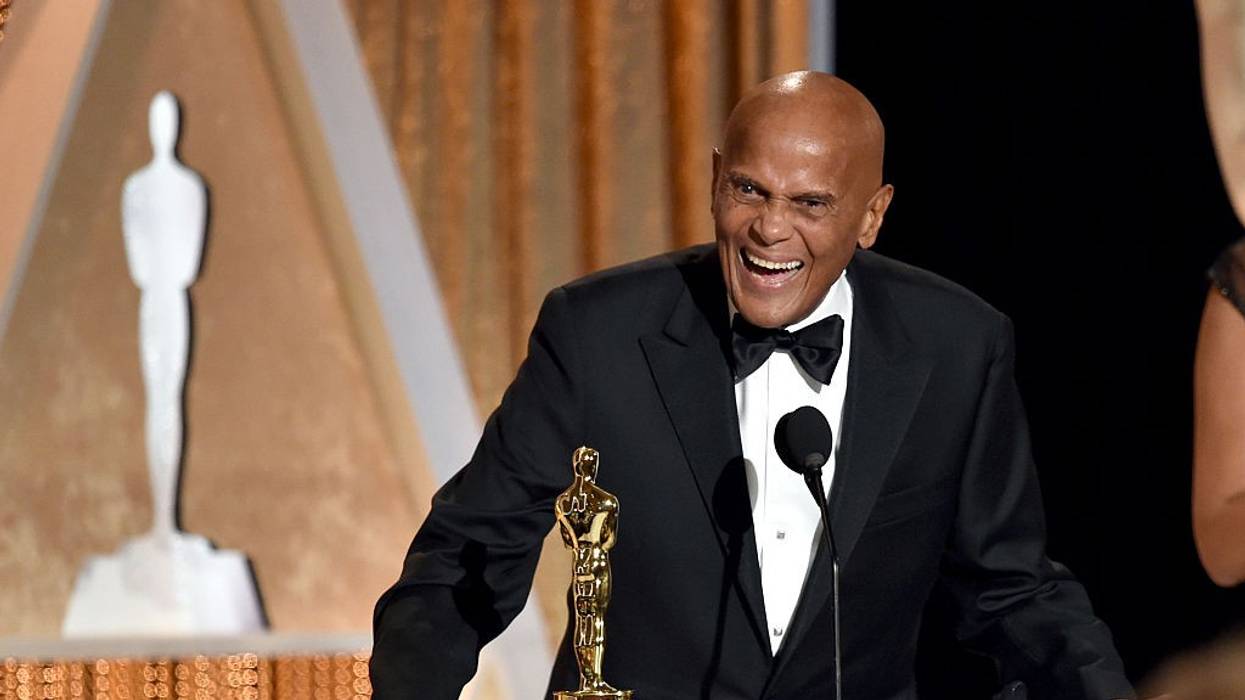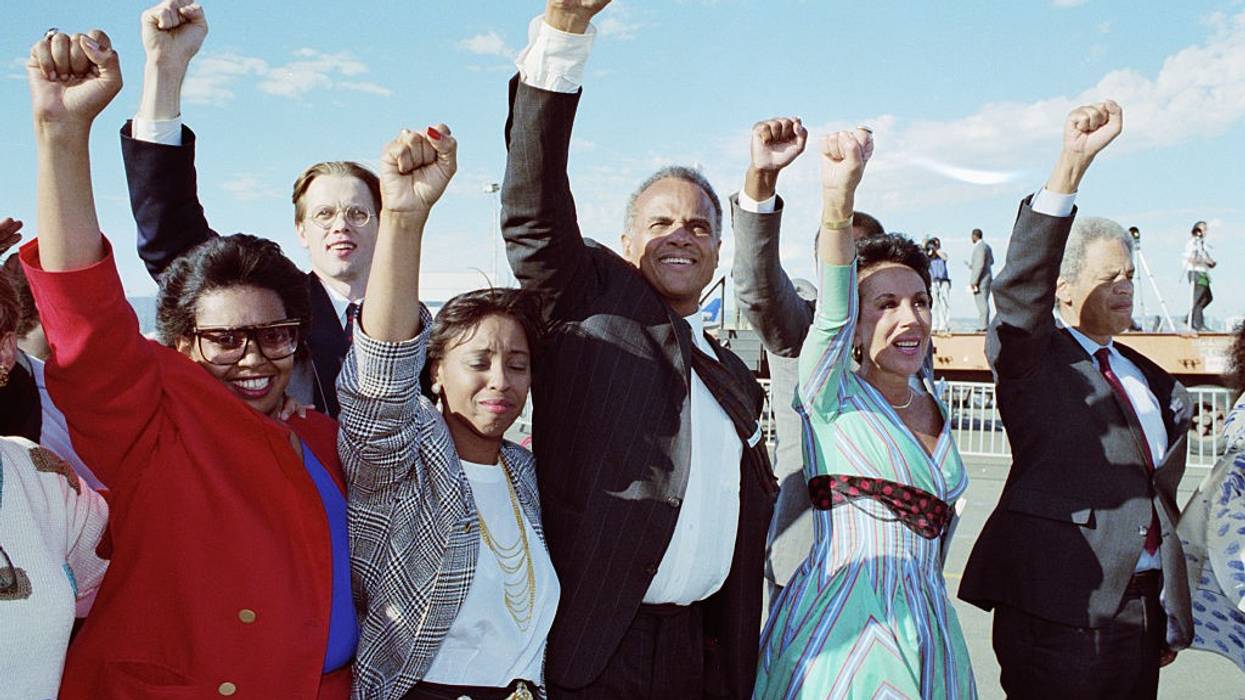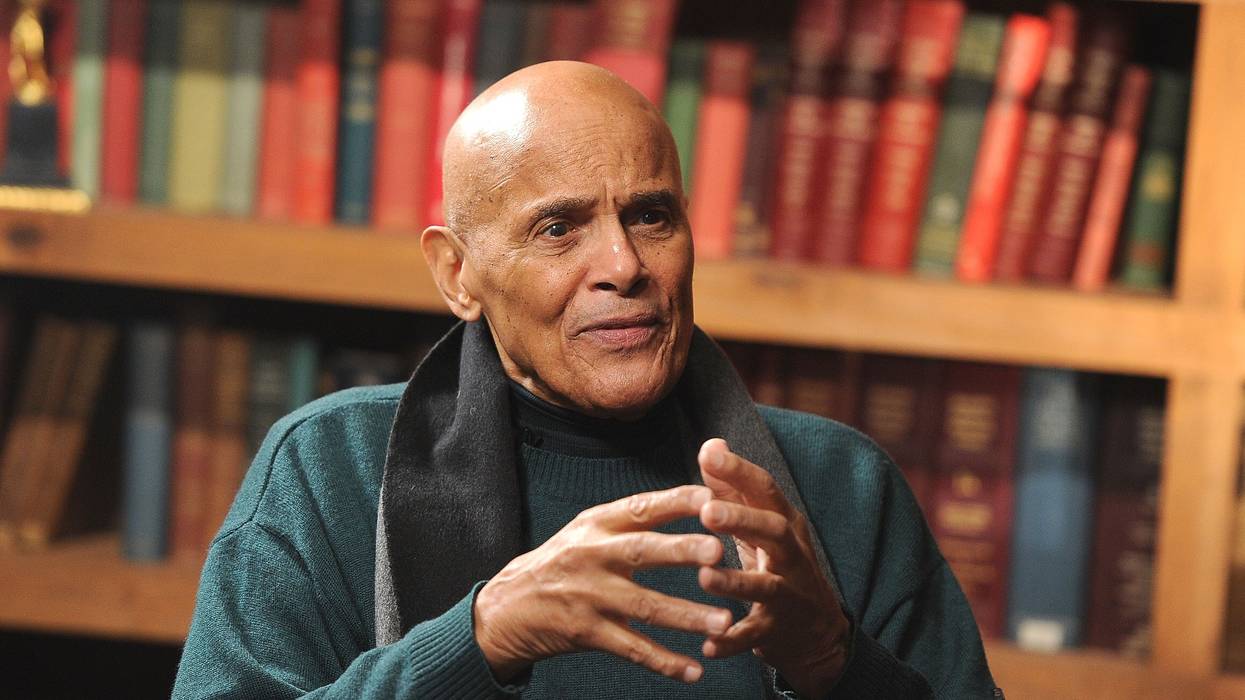What I Learned About Justice From My First Boss Out of College, Harry Belafonte
Mr. B. set an example by staying true to his convictions, building community and bridges across cultures, and remaining tenacious while battling economic and racial inequality.
Some know the late Harry Belafonte for his genre-jumping music and silky baritone voice, epitomized in his classic 1956 album Calypso. Others swoon over his performances in films like the 1954 musical Carmen Jones.
In activist circles, he’s revered for supporting his good friend Dr. Martin Luther King, Jr. during the civil rights movement, funding voter registration drives in Mississippi, and financing the Freedom Riders and Student Nonviolent Coordinating Committee (SNCC), among many other examples.
I knew him for something else besides: He was my first boss after college.
In 2005, I worked for Harry Belafonte as his executive assistant in New York. We connected through my mentor-professor Saul Landau, the late writer and filmmaker who befriended “Mr. B” (as he liked to be called) through their travels to Cuba.
I was just beginning my career, knowing only that I was drawn to social justice and the arts. There was no better person to learn about either than from Mr. B — and in no better place than where he once strategized with Dr. King and others in the civil rights movement.
From the moment I started, I took calls and messages for Mr. B not just from those in the music and film industry, but also lawyers, policy advocates, social movement leaders, and poets engaged in ongoing struggles against injustice.
They sought his advice and endorsement, while he focused on empowering the next generation of artists and activists. Even as countless shiny awards lined his office walls, he never rested on his laurels. I saw his humanity — and he challenged my notions of “celebrity.”
Time and again, Mr. B showed that an artist can be more than an entertainer.
During one of my first days on the job, for instance, I dreaded informing him that his friend of 60 years, iconic actor and activist Ossie Davis, had passed away. Very few of us are expected to issue immediate comments to the press after receiving devastating news. Yet amidst his sadness, I remember Mr. B’s strength as he spoke in honor of his friend to the media throughout that long day.
As I now look back at his early life, I have an even greater appreciation for what he overcame. Born to Jamaican immigrants in Harlem in 1927, Mr. B’s early years were heavily influenced by poverty.
In his 2011 memoir, My Song, he chronicled his mother struggling to put food on the table as a domestic worker. His father was a cook aboard United Fruit Company ships and wasn’t always present. Belafonte’s 1956 song “Day-O (Banana Boat Song)” pays tribute to both the toils of his parents and the workers in the banana fields of Jamaica.
After serving in the Navy, Belafonte worked odd jobs to make ends meet in a country still ruled by segregation. His mother’s refrain to fight injustice wherever he saw it laid the foundation for his life and career trajectory. Because of her, he recalled in his memoir, he was an “activist who’d become an artist.”
Against all odds Belafonte rose to stardom, becoming the first Black man to win a Tony, the first Black man to win an Emmy, and the first artist to record an album that sold 1 million copies. And time and again, Mr. B showed that an artist can be more than an entertainer.
He supported the movement against apartheid in South Africa and the campaign to free Nelson Mandela. He organized the all-star charity record “We Are the World” that raised millions for famine relief in Africa. He served as a UNICEF Goodwill Ambassador for 36 years, advocating for health care, HIV/AIDS treatment, and free education access for all.
I will always treasure the lessons I learned from Mr. B. He set an example by staying true to his convictions, building community and bridges across cultures, and remaining tenacious while battling economic and racial inequality.
Rest in power, Mr. B. The work continues, guided by your life’s inspiring song.


